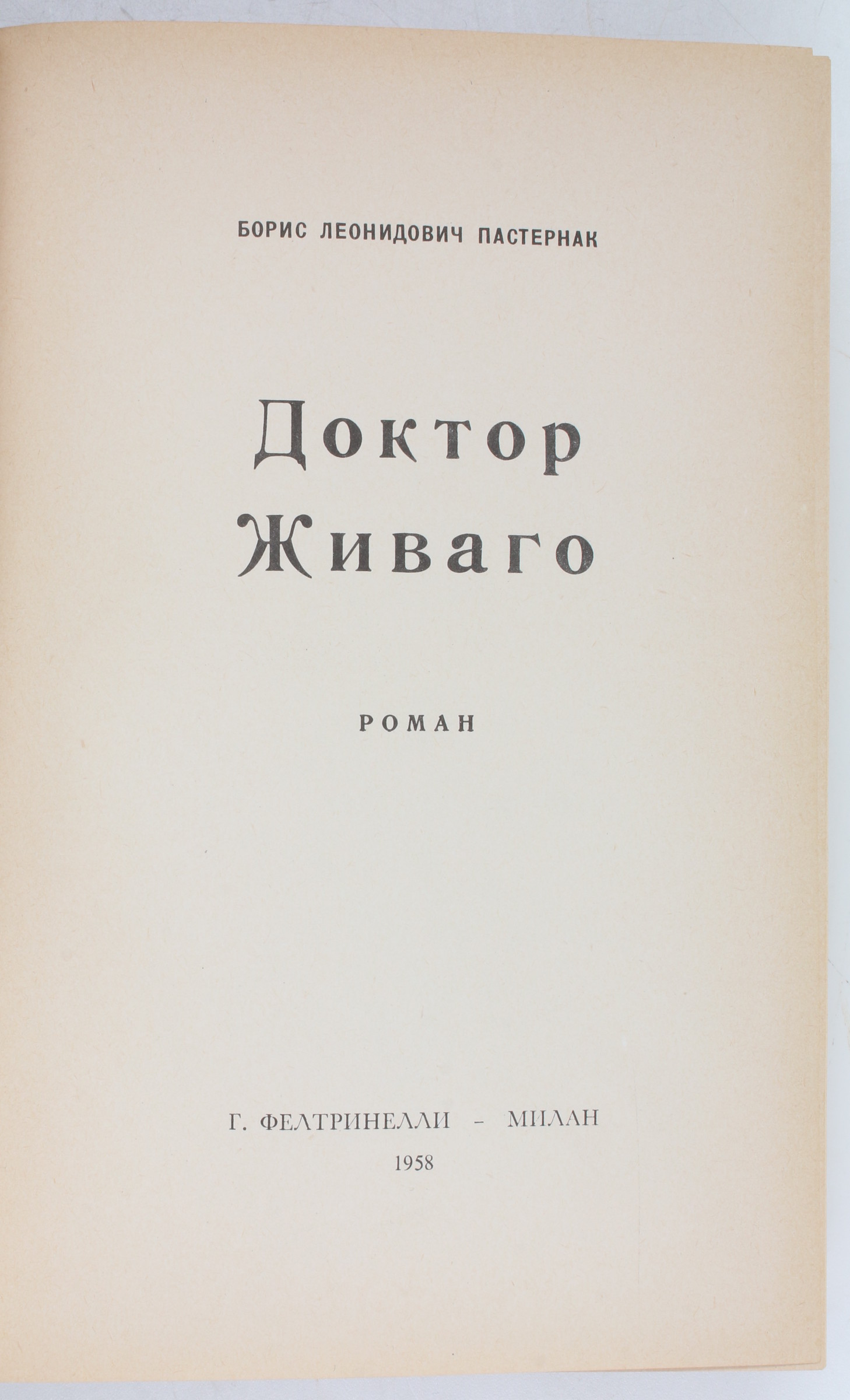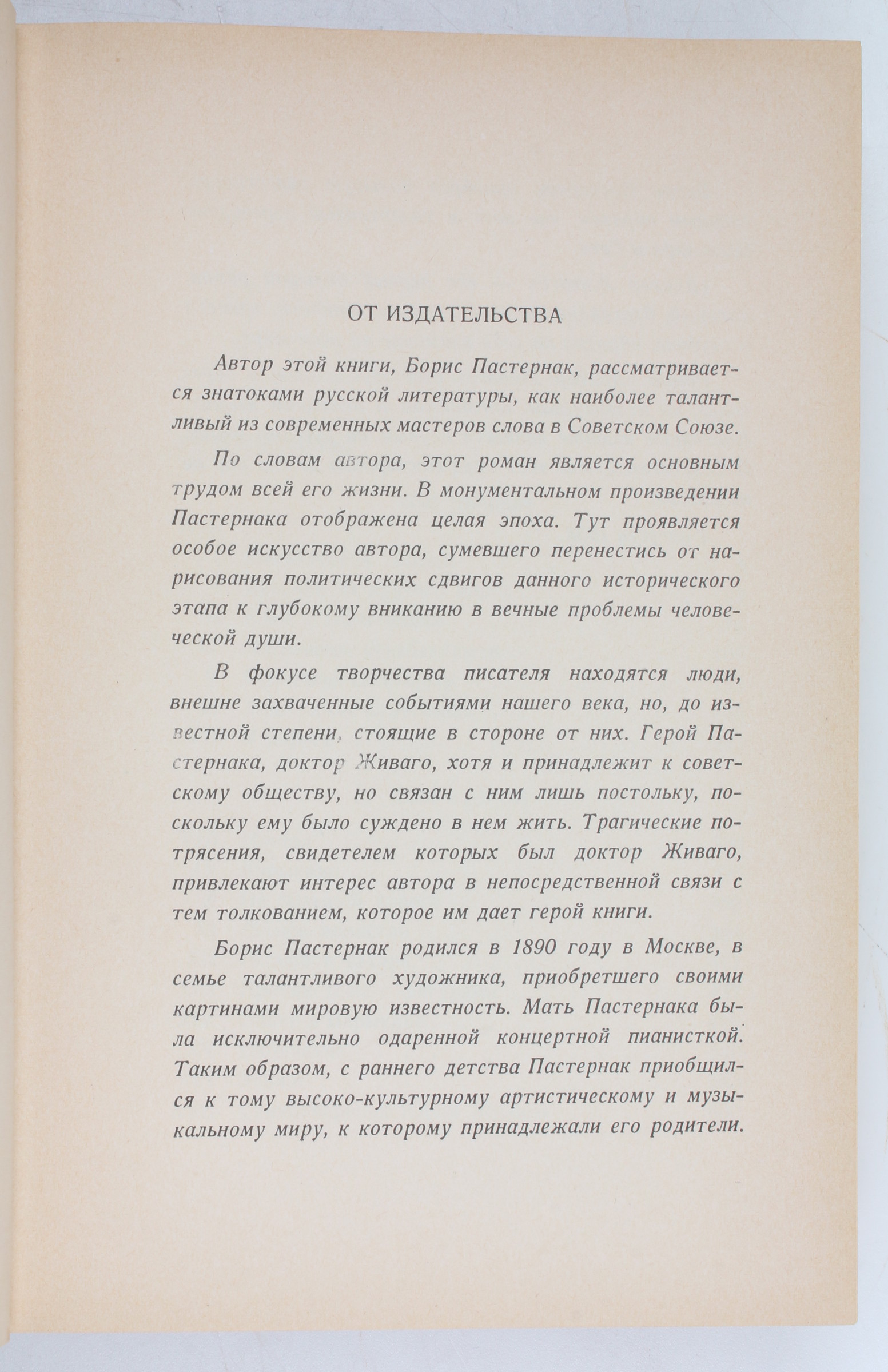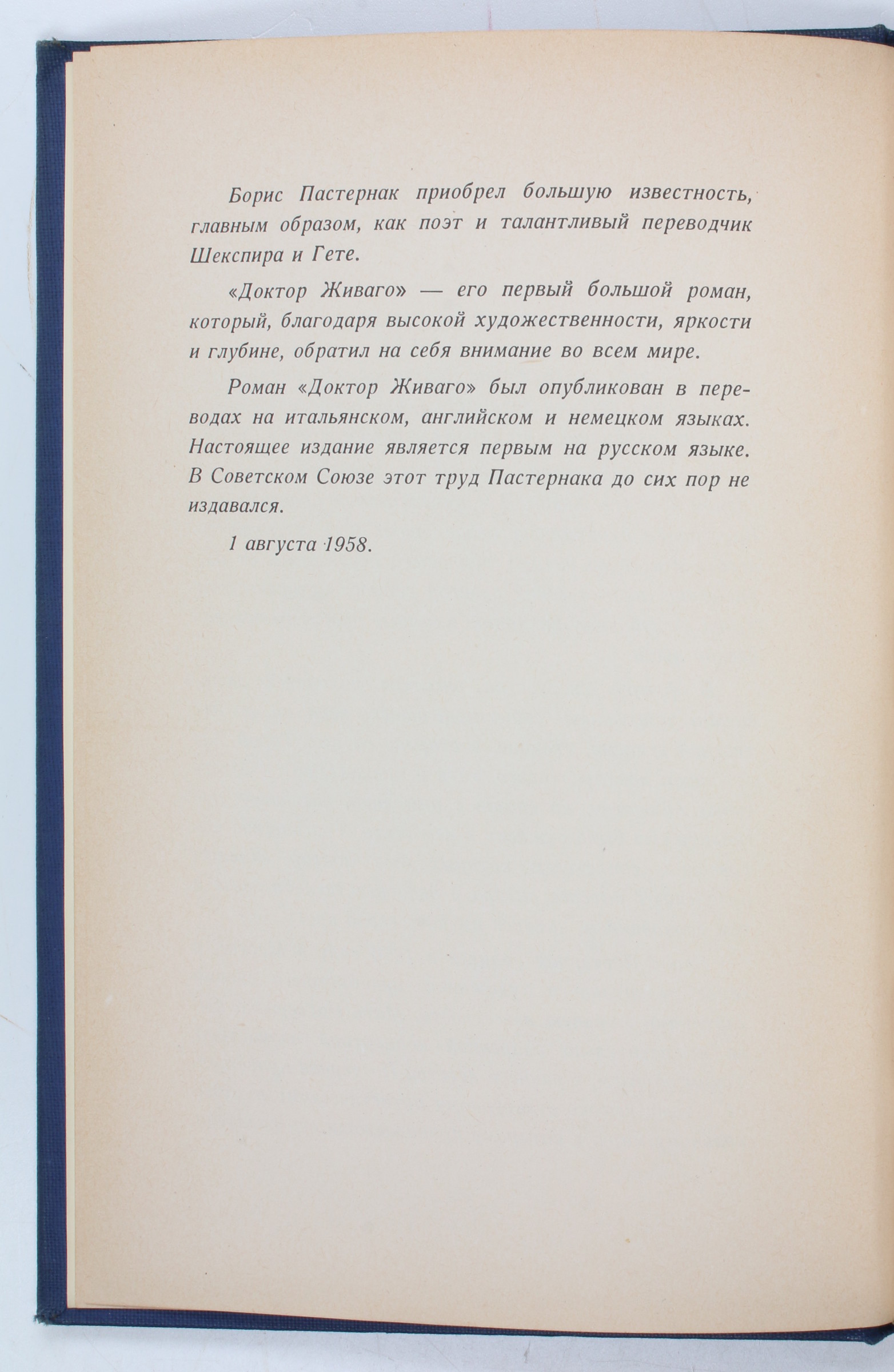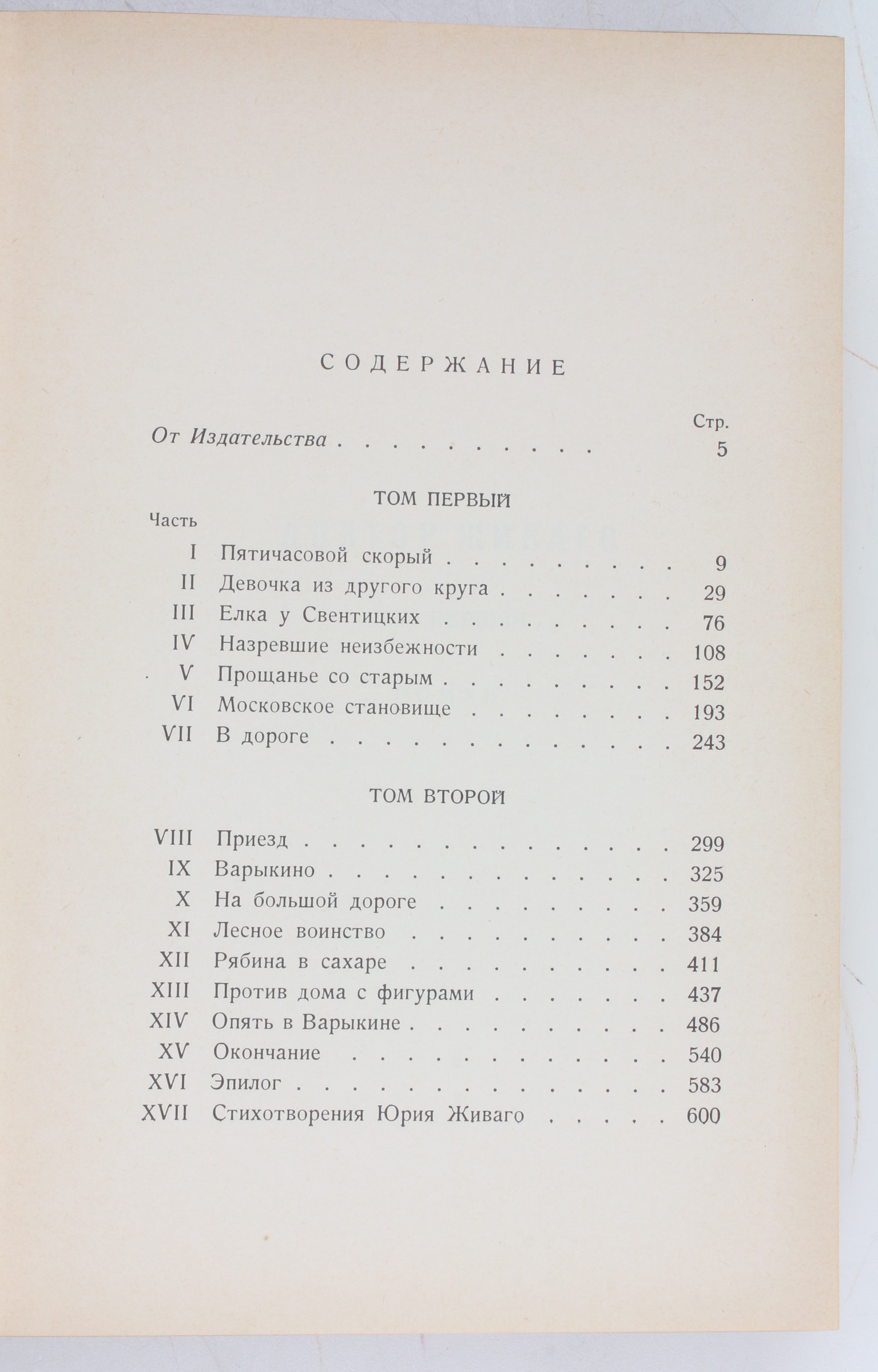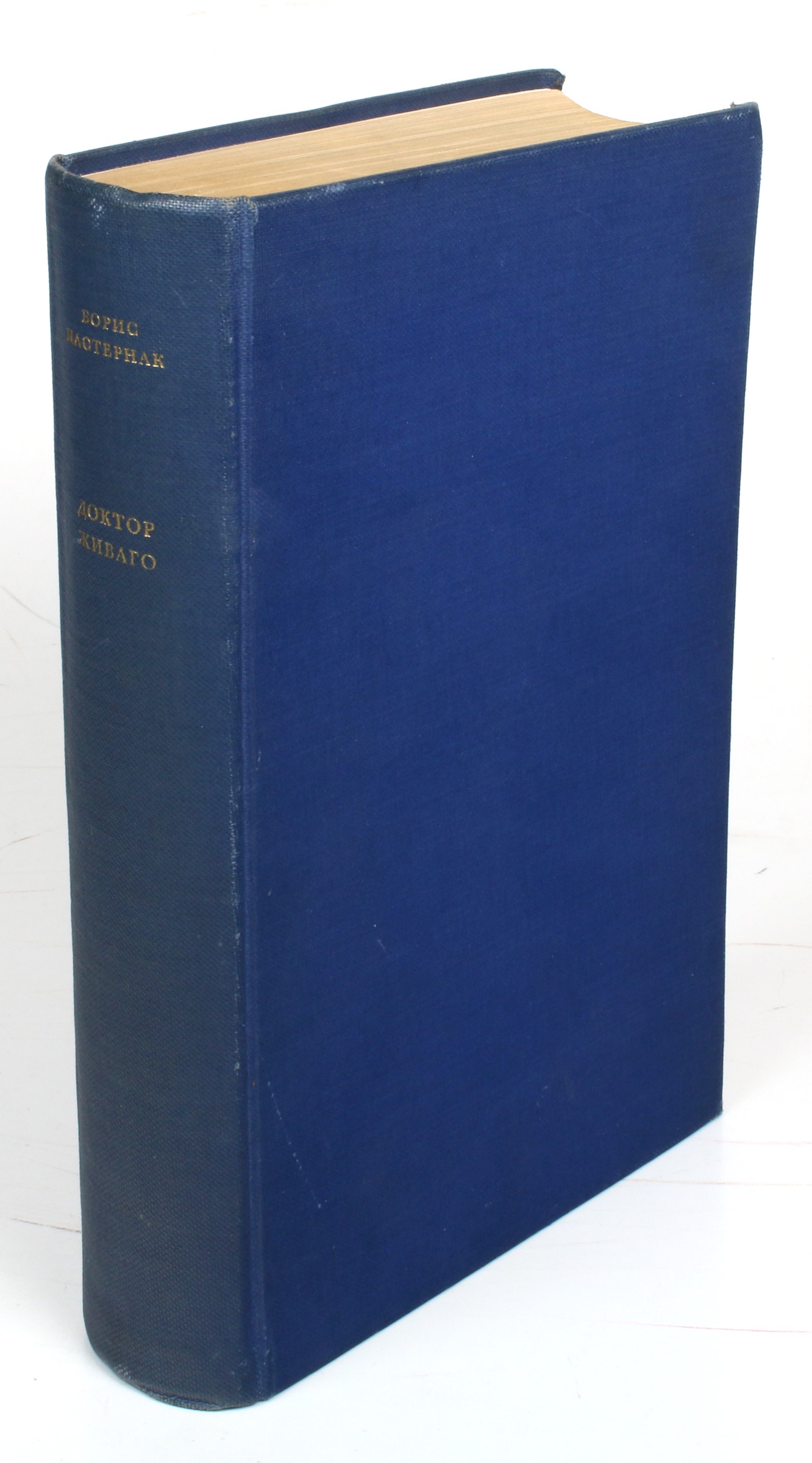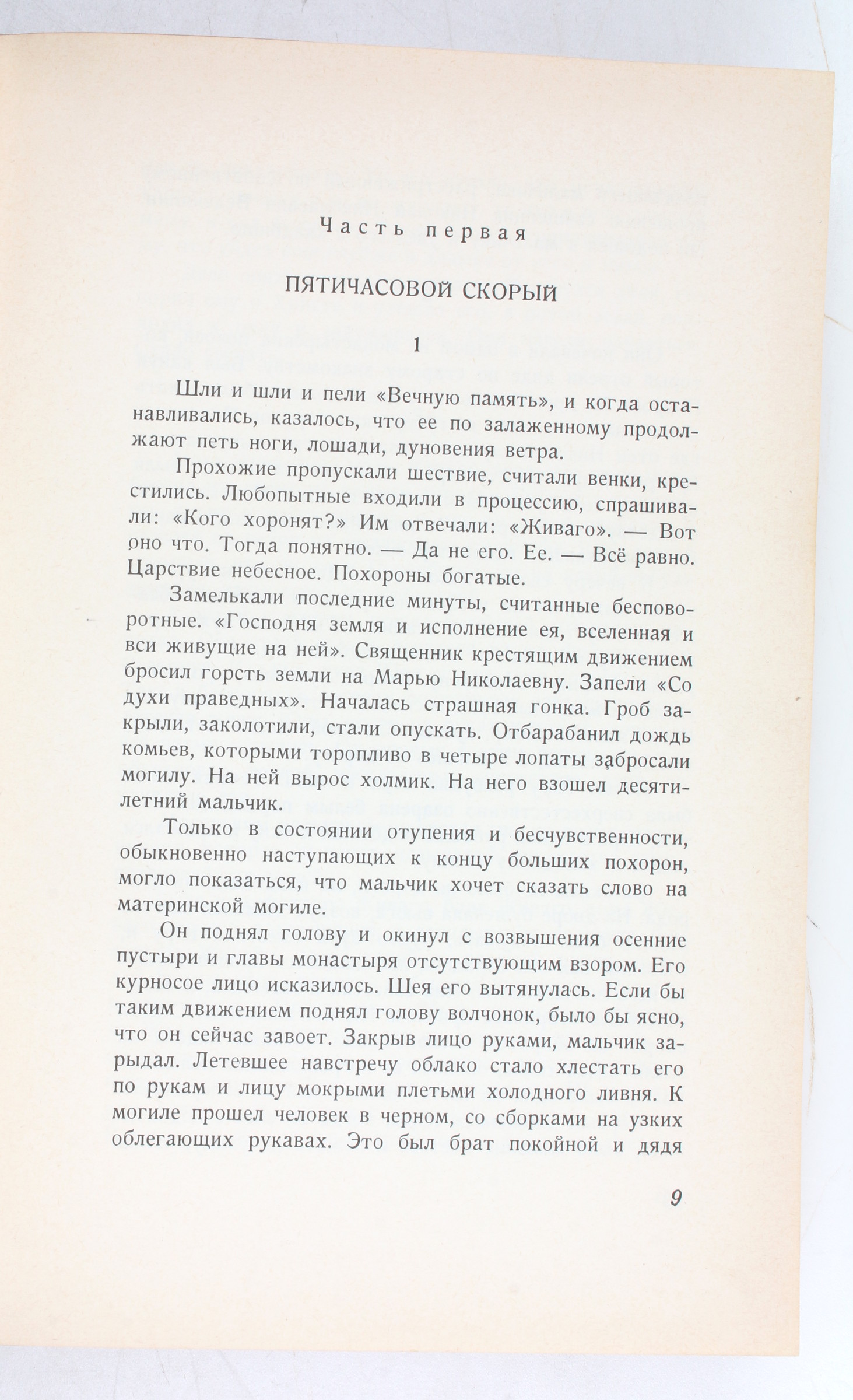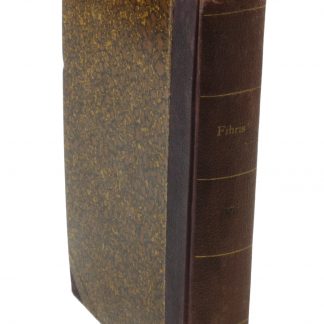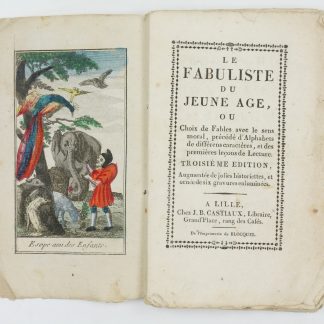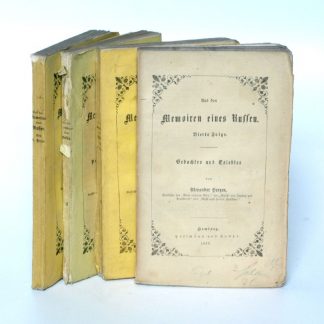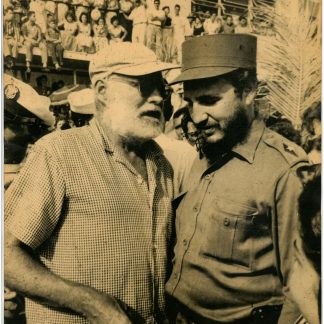From the CIA, the Vatican, and an Italian Communist: the first Russian edition of Doctor Zhivago
Doctor Zhivago.
8vo (160 x 227). 634 pp. Blue cloth titled in gilt on spine.
First edition: one of only 1,160 illegally printed copies in Russian of the novel which won Boris Pasternak (1890-1960) the Nobel Prize. These were published by Mouton in the Netherlands - though they feature the Feltrinelli imprint - and are issued in their trademark, nondescript blue cloth. The publication in Russian was facilitated by the CIA as part of an effort to embarass and ultimately to undermine the USSR, and several hundred copies were distributed via the Vatican's stall at the 1958 Brussels World's Fair.
The journey to a rushed publication started two years previously in the USSR. After having been rejected by the literary monthly Novy Mir for not adhering to socialist realism, the manuscript for Doctor Zhivago was smuggled out of Soviet Russia by the Italian journalist Sergio d'Angelo and published by the Italian communist Giangiacomo Feltrinelli, an act for which Feltrinelli later claimed that the Italian communist party revoked his membership. Feltrinelli in fact published an Italian translation first, which became an international sensation and was subsequently followed by numerous other translations. However, to win a Nobel Prize, it was generally understood that an author must have been published in the original language of his manuscript. With Pasternak an acknowledged favourite for 1958, the pressure was on. Feltrinelli managed to get his imprint on most or all of the Mouton copies, as seen on this volume, thus cementing his name as the publisher of the work which was expected to win that year's Nobel Prize.
John Maury, chief of the CIA's Soviet Russia division, recognized the novel as "the most heretical literary work by a Soviet author since Stalin's death". Perhaps the novel's greatest champion in America was the critic Edmund Wilson, who in The New Yorker described it as "one of the very great books of our time [...] a great act of faith in art and in the human spirit". Pasternak was denounced in Russia as being "anti-Soviet", and the pressure only increased after he was named winner of the Nobel Prize for Literature in 1958, which he was forced to refuse in order to avoid deportation.
In exceptionally fine condition.
Cf. Finn/Couvee, The Zhivago Affair (London, 2014).

